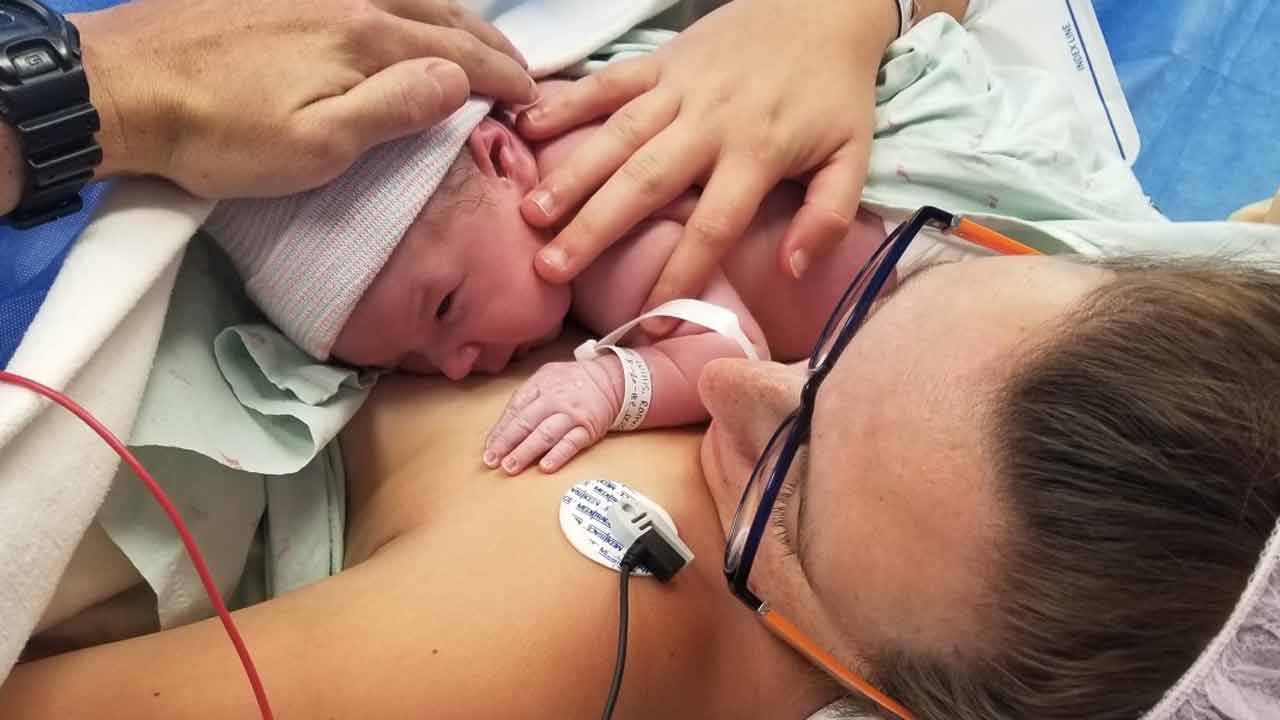A Conversation About C-Sections: These Tips Can Help You Prepare

As an expecting mom, there are several things that may keep you up at night – will my baby be healthy, am I eating right, am I getting enough exercise, how will my pain be managed, how long will it take for me to recover – the list goes on and on. There’s no way to prepare for every surprise and challenge, but having proactive discussions with your clinician throughout your pregnancy can eliminate some of the anxiety and concerns you may be feeling.
One of the most common questions I hear from patients is – what happens if I need to have a Cesarean section (C-section)? Below, are some tips and questions to consider if you find yourself needing to deliver via C-section.
You’re Not Alone
One-third of all babies in the U.S. are born via C-section, and many of these surgeries are scheduled in advance. According to the American College of Obstetricians and Gynecologists (ACOG), there are several reasons a C-section might be necessary, including having a large baby, pregnancy with twins, failure of labor to progress, fetal distress, and maternal medical conditions like diabetes, high blood pressure, or problems with the placenta.
Whether your C-section is planned or unplanned, it’s common to have questions about your recovery. Your doctor will likely outline a few parameters regarding exercise, overall mobility and weight carrying limits, but many moms are very anxious to get back to their day-to-day activities quickly following delivery. In fact, according to a new survey, On the Rebound: What to Expect After Surgery, 96% of women ages 30-50 said they were motivated to get back to their daily routine after surgery with 43% citing caregiving responsibilities and 31% saying a prompt return to work as the main reasons for needing to get back to normal.
Be Flexible With Your Birth Plan
By developing a birth plan, moms can outline their hopes and expectations for their labor and delivery; however, flexibility is critical. It’s impossible to consider every scenario for what could happen during delivery so keep an open mind and know that your doctors are doing everything they can to keep you and your baby safe. It’s most important to have a doctor you trust and can speak openly with about your fears and wishes in the delivery room, and who can talk you through what to really expect. I encourage all pregnant women to at least explore pain management options (discussed below), even if you are not PLANNING a C-section as, oftentimes, C-sections are unplanned.
Discuss Pain Management Options
In my experience, most patients focus on the actual procedure – what it entails and when they can get back to typical daily activities, including work – they are far less concerned with the pain they’ll experience when they return home. I encourage all women planning for surgery (whether it’s a C-section or other type of surgery) it is important to ask their doctor about how their pain will be managed during and after surgery, including the risks and benefits of their options. One common option is opioids – prescription pain medications that are used to treat moderate to severe pain, including acute pain following surgery. While opioids can be safe and effective if taken properly for a short period of time, opioids are known to impede or delay recovery after surgery and they are also associated with risks of addiction and dependence. Other side effects include nausea, vomiting, dizziness, sleepiness, etc. And, according to a recent study, women are often prescribed more opioids than needed following a C-section, creating a high risk for potential diversion or misuse of these medications.
Ask About Non-Opioids
New research reveals that most women are neglecting to ask the one question that will help them swiftly recover and return to their daily routine as quickly as possible – and that is whether a non-opioid option could be used to manage pain after their procedure. There are safe and effective non-opioid options available that can help patients reduce the unwanted side effects that often come with opioids. In my practice, I’ve been able to avoid prescribing opioids by using a long-acting numbing medication injected during surgery. This non-opioid option allows me to effectively control my patient’s pain for several days after the procedure when pain is often at its worst. My patients report having a positive recovery experience, including a shorter stay in the hospital, and they aren’t exposed to the side effects of opioids.
The good news is the use of non-opioid options are continuing to gain traction, especially among OB/GYNs like myself. A recent survey found that 57% of OBs have increased their use of non-opioids in the past 12 months, with 63% attributing the increase to safety and 51% saying they have fewer side effects.
Advocate for Yourself
Women need to hear and understand how important it is for them to advocate for themselves and discuss all options with their health care provider. If you don’t feel like you’re getting the information, attention, or treatment you need, feel empowered to seek out another provider. If there is something that concerns you about how you’re feeling, and your doctors dismisses it, get a second opinion. Whether you’re a new mom or have several children already, you need to advocate for yourself and your loved ones – especially when it comes to making important health decisions.
About the Author: Dr. Stoehr is an OBGYN at Nurture Women’s Health in Frisco, TX




